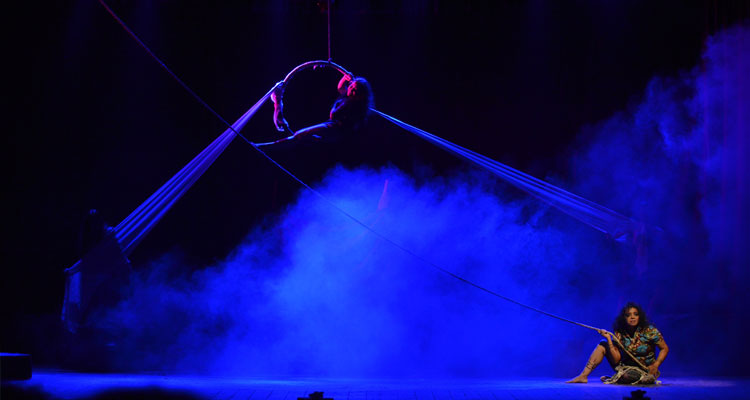Comfort Women: An Untold History
The horrors of war are devastating; both mentally and physically. It not only causes soldiers to suffer physically on battlefields but unleashes deeper physical and psychological wounds to many other involved in wars. The term
“comfort women” is used for women and girls forced into sexual slavery by the Japanese imperialist army before and during World War II. Women at the comfort stations were forced to render sexual services to many officers and men, their human dignity trampled on for the ‘comfort’ of men.
This play written and directed by Ranhang Choudhury set in Assam, tells the untold story of the abuse by Japanese soldiers in eastern India during World War II through the plight of Sarengla, a village girl, who too loses her dignity to war and to the brutality of the Japanese army; it chronicles her struggles of abuse and survival and of the child which grows in her womb. Sarengla, the protagonist, was inspired by Dr. Birendra K. Bhattacharjee’s iconic novel Earuinggom, in an attempt to discover another thousand Sarenglas.
The play opens with the courtship scene between Rishang – the village boy Sarengla is in love with – and Sarengla; the scene captures their innocence, dreams filled with the promise of their future together. However, Sarengla sees the bleak darkness on the horizon as the Japanese military aircrafts hovering around their village. She also overhears the ominous conversation between her mother and the village villain, who has been sending off village girls to the Japanese Army for financial favour.
The stage design is minimal but very effective. The placement of blocks, the hollow barrels, suspended rope and a cage, are put to telling use in the narrative. The simple stage design and mood-defining lights have been made poignant by some great music. The music (East Asian) and melodic singing is not only haunting and but also connects the sufferings of all the comfort women stretching from India to Korea.
Where the play underwhelms is in the acting department. The women actors are too loud and over the top. The only Japanese soldier, who is different from his colleagues and befriends Sarengla does so with little impact. His anguish on losing his young sister does not come across as the reason for him to help young girls escape the war station.
But the escape from the Japanese clutches is not real for these women, who further go through the trauma of being rejected, on their return, by their own loved ones. Rishang, who was besotted by Sarengla, now sees her as sullied and characterless. The rejection by their own, deepen the scars inflicted by the Japanese Army for these women.
The closure of the play is very impactful with each member of the cast holding photographs or real-life comfort women, who were victims of circumstances, far beyond their understanding or control.
It is shameful that the plight of these comfort women brought out in the open in the 1990’s has in no way diminished the brutalities against women and children. The human trafficking, rapes and dislocation – all continue unabated. The play’s relevance that – women and children are still the worst sufferers as objects of hate, lust or exploitation in times of war and even in our times of peace, refer to them as Comfort Women, Nibhaya or Asifa, will stay with you.




Leave a reply